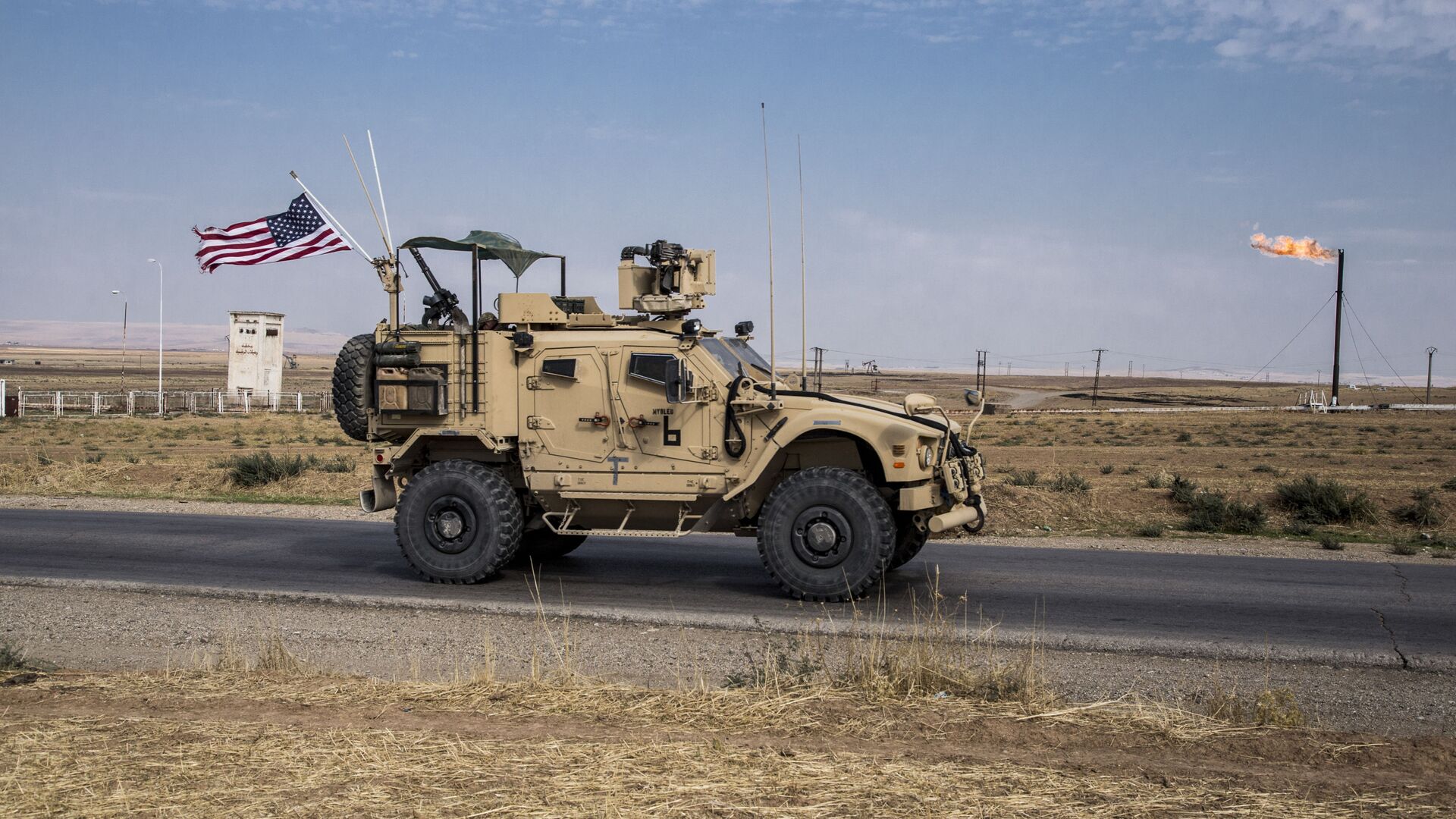West Uses Transition in Syria as 'Smoke Screen' to Establish Presence - Ex-UK Ambassador
01:31 GMT 11.12.2024 (Updated: 05:33 GMT 11.12.2024)

© AP Photo / Baderkhan Ahmad
Subscribe
MOSCOW, December 11 (Sputnik) - The so-called transition period in Syria is a pretext for Western countries that need time to establish working relations with the country's new authorities, ex-UK Ambassador to Syria and Middle East expert Peter Ford has told Sputnik.
"All talk of 'transition' is a smoke screen to create a window of one or two years in which the Western powers can develop an open master-client relationship with people who yesterday were Al-Qaeda and ISIS [both banned in Russia as terrorist]. For Western powers, the optics of doing business with gangs and warlords designated as terrorist groups present a problem. This can be got round, however, by pretending to have a 'transition,'" Ford said.
The militants of Hayat Tahrir al-Sham are trying to establish in Damascus an authority similar to the "salvation government" it had created in Idlib to cover its rule, he added.
"This is akin to the administration Hamas installed in Gaza, although Hamas, of course, were elected," the ex-diplomat said.
The true transition process would require the participation of many groups, Ford continued.
"If we were going to talk seriously about 'transition,' it would be necessary to include groups like the Kurds (who want autonomy), the Druze (who just want to be left alone), the Eastern tribes (who want the proceeds from oil wealth), and, of course, supporters of the Asad regime, including the Baath Party, left behind just as Baathists were left behind in Iraq after Saddam's fall. None of this is going to happen," he said.
The armed opposition coming to power in Syria will have significant consequences for the Middle East, with Lebanon and Palestine facing the greatest risks, Peter Ford said.
"The regional consequences are severe. First and most urgently, Lebanon is now threatened by a pincer movement of the Syrian jihadis and their Israeli allies, both hoping to seize on a moment of weakness for [Hezbollah], previously brought to its knees by Israel and now handicapped by losing its lifeline to Iran via Syria," Ford said.
Israel and the new Syrian authorities are capable of reaching a peace agreement, he added.
"The jihadi groups are more than ready to ally with Israel (like the Gulf states) for the purpose of fighting their common enemies [Hezbollah] and Iran. The Palestinian cause has been dealt what may be a final death blow. It now has not a single Arab state champion. The way is now clear for Israel to finish its work of creating Greater Israel," Ford continued.
Armed opposition that has captured power in Syria will try to suppress Kurds that will be left without the support from the US after the ouster of President Bashar Assad, Ford stressed.
"The clear intention of the jihadis is to carry out the orders of their Turkish controllers and neutralize the Kurds by destroying the so-called Syrian Democratic Forces (SDF) militia. The US forces in the Kurdish areas are unlikely to protect their Kurdish clients because now, [when Assad] has gone, they do not need them," Ford said.
The Kurdish groups' aim was to stop the Syrian government from rehabilitating economically after the war, "by assuming control over Syria's oil and grain resources located in the Northeast," he continued, adding that such measures are no longer necessary.
The Syrian opposition may attempt to stabilize relations with Washington, but it "may not go as smoothly" as they think, Ford said.
"The US will probably realize quite soon that they no longer need the jihadis now [that] their work of toppling Asad is done. The jihadis will be forced to beg to get sanctions lifted," he added.
At the same time, under the opposition's authority, Syria may become more united despite the fact that it has "not been united for many years," the former ambassador said.
"With Israel occupying the Golan, the US through their Kurdish proxies controlling the Northeast, Turkey occupying border areas, the jihadi opposition occupying the province of Idlib, shared government control with ex-jihadis under Russian monitoring in the South, and the US occupying the Al Tanf border enclave and ISIS [IS, banned in Russia] parts of the Syrian Desert. In a sense, the country is more likely now to be united with jihadi rule everywhere except the Golan," Ford added.
Syrian armed groups captured the capital of Damascus on Sunday. Syrian Prime Minister Mohammad Ghazi al-Jalali said that he and 18 other ministers had decided to remain in Damascus. Al-Jalali also said he was in contact with the leaders of militant groups that had entered the city. The Russian Foreign Ministry said that President Bashar Assad had stepped down and left Syria after negotiations with some participants of the Syrian conflict.


